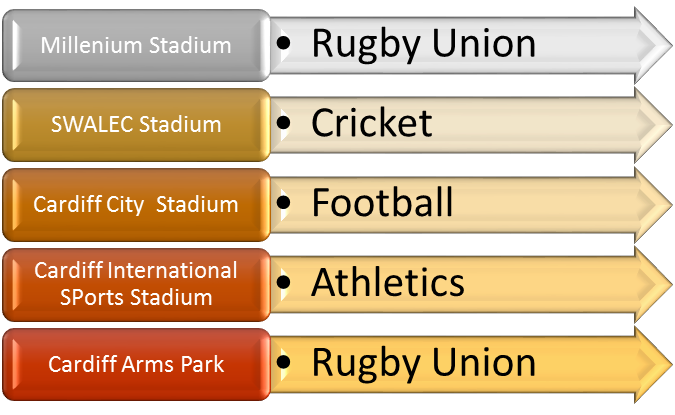Cardiff is the capital of Wales and the 11th largest city of U.K. It is the country’s chief commercial center and the base for most natural cultural and sporting institutions. The population of Cardiff equals 1/3rd population of the entire Welsh area. National Geographic ranked it at number six among alternative tourist destinations. It also happens to be a part of the Eurocities network.
Sports
The city of Cardiff is full of various sporting venues.

Cardiff was awarded the title of the European City of Sport twice. It had successfully hosted major international sporting events in 2009 and in 2014. The Millennium Stadium, in the 2012 Summer Olympics, hosted 11 football matches and also the games' opening event. It also hosted the men's bronze medal match as well.
Government
Cardiff has been under the control of the City and County Council of Cardiff since the local government was reorganised in 1996. Every four years, the citizens of Cardiff elect 75 councillors for the next term.
Between the 2004 and 2012 elections, none of the political parties could gain a full majority to lead the Cardiff County Council. During this period a joint partnership administration existed. The administration constituted of the Liberal Democrats and Plaid Cymru. In 2012 the Labour Party achieved an absolute majority of leading the County Council.
Cardiff is divided into various communities with each one of them having their own community council. Those which do not have a community board of their own are managed by Cardiff City Council. They are:
- Lisvane
- Old St Mellons
- Pentyrch
- Radyr and Morganstown
- St Fagans
- Tongwynlais
Telephone
The dialling code for Cardiff and the surrounding towns of Penarth, Dinas Powys and Caerphilly is 029. If a call is made locally, the dialing code is not required. Before 22nd April 2000, when the Big Number Change took place, the area had a six-digit number system with a zone code of 01222 . Today even there is a misconception among the citizens of Cardiff regarding the length of the number as well as the format of the telephone number.

 ENQUIRE
ENQUIRE
 REQUEST CALLBACK
REQUEST CALLBACK
 GET A FREE QUOTE
GET A FREE QUOTE


 Introduction
Introduction Course Details
Course Details Course Content
Course Content







 London
London